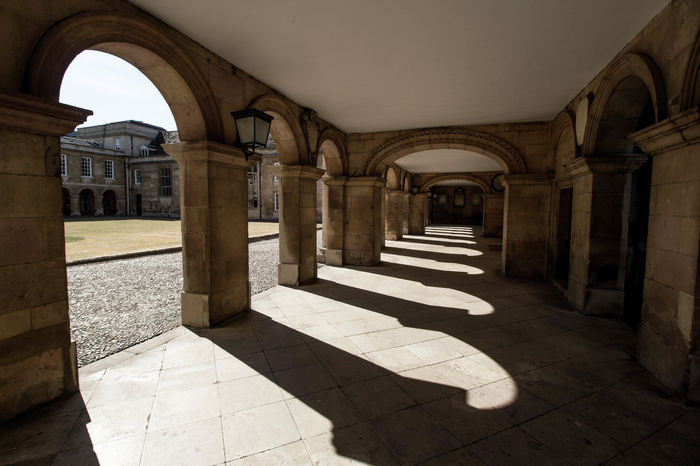Cambridge Report+Support website temporarily removed over content ‘error’
This comes amidst concerns from academics about the impacts of the reporting system

Cambridge’s newly-launched ‘Report+Support’ website has been temporarily removed after material was included “in error,” Vice-Chancellor Stephen Toope told the Telegraph.
The site has been taken offline whilst the material is removed, while an investigation has been launched into its original inclusion.
This comes after a series of reports over the weekend that the examples of potential offences for which members of academic staff could be reported would foster an environment “akin that of a police state.”
The site provided a detailed explanation of everyday micro-aggressions, which were defined as the “slights, indignities, put-downs and insults” experienced by minority groups. A list of examples included “behaviours such as a change in body language when responding to those of a particular characteristic, for example, raising eyebrows when a black member of staff or student is speaking,” asking “where are you really from?” or misgendering a person, especially if their pronouns have been shared.
“Some of the statements and examples in this material go beyond the approved policy framework and would undermine its impact,” Toope told the Telegraph.
Students should report incidents through College or faculty staff, the current notice on the website says.
The reporting system was introduced in line with the principle that “We want the University of Cambridge to be a place where everyone can feel safe and thrive. Abusive behaviour, discrimination, sexual misconduct and physical misconduct should have no place here.”
The removal of the site follows escalation in the response to the website’s material, including the Free Speech Union threatening to initiate legal action against Toope.
A letter written by Toby Young, the general secretary of the FSU, to the Vice-Chancellor, referred to the policy as “inconsistent” with free speech aims.
“This policy, as you must be aware, would radically interfere with how your academics teach, argue with and learn from students, as well as how students interact with each other,” Mr Young said.
“It would mean academics and students were under constant threat of being reported and investigated for having committed some wholly innocent but perceived slight, which would inevitably have a chilling effect on interactions that, in a university, should be free and unguarded.”
Earlier this month, the Government announced details of its plans to promote freedom of speech at UK universities, which are set to include creating the office of Director for Freedom of Speech and Academic Freedom, and the creation of a new complaints scheme for students, staff and visiting speakers.
At the time of the announcement, the Government emphasised the importance of “distinguish[ing] between lawful, if offensive, views on one hand and unacceptable acts of abuse, intimidation, and violence on the other.”
Meanwhile, Education Secretary Gavin Williamson added that “Holding universities to account on the importance of freedom of speech in higher education is a milestone moment in fulfilling our manifesto commitment, protecting the rights of students and academics, and countering the chilling effect of censorship on campus once and for all.”
Revision of the University’s statement on free speech in December replaced the demand for “respect” for the opinions of others, made in an earlier statement in March 2020, with “tolerance.” Responding to the change at the time, Toope reiterated that: “Freedom of speech is a right that sits at the heart of the University. This statement is a robust defence of that right.”
 News / Eight Cambridge researchers awarded €17m in ERC research grants27 December 2025
News / Eight Cambridge researchers awarded €17m in ERC research grants27 December 2025 News / Clare Hall spent over £500k opposing busway 24 December 2025
News / Clare Hall spent over £500k opposing busway 24 December 2025 Comment / League tables do more harm than good26 December 2025
Comment / League tables do more harm than good26 December 2025 Comment / The ‘class’ of Cambridge24 December 2025
Comment / The ‘class’ of Cambridge24 December 2025 News / Caius mourns its tree-mendous loss23 December 2025
News / Caius mourns its tree-mendous loss23 December 2025










